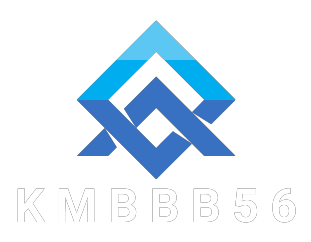Decentralized Finance (DeFi) has emerged as one of the most transformative innovations in the financial industry. With its promise of enabling peer-to-peer financial transactions without intermediaries, DeFi leverages blockchain technology to create an open, transparent, and secure financial ecosystem Stake. Central to this ecosystem is the concept of “staking,” a fundamental mechanism that supports many DeFi protocols.
In this blog post, we will explore the role of stake in DeFi, its benefits, and its impact on the future of decentralized finance.
What is Staking in DeFi?
Staking is the process of locking up a certain amount of cryptocurrency to support the operations of a blockchain network or a specific DeFi protocol. When users stake their tokens, they participate in securing the network, validating transactions, and sometimes even governance. In return, they earn rewards, usually in the form of additional tokens.
Staking is commonly associated with Proof of Stake (PoS) and other consensus mechanisms like Delegated Proof of Stake (DPoS) and Proof of Authority (PoA), which are designed to replace the energy-intensive Proof of Work (PoW) system. By staking tokens, participants can help secure the network and improve its efficiency without requiring the immense computational resources of mining.
How Staking Works in DeFi
Staking in DeFi operates through smart contracts—self-executing contracts with predefined rules that are stored and executed on the blockchain. These smart contracts automatically handle the staking process, from locking tokens to distributing rewards.
- Staking Pools: In DeFi, staking often occurs within staking pools, where multiple users combine their assets. These pools increase the chances of earning rewards since the larger the stake, the higher the probability of being chosen to validate or produce blocks.
- Rewards: Stakers are typically rewarded based on the amount of cryptocurrency they have staked and the duration for which they lock their assets. These rewards can be periodic and may vary depending on the specific DeFi platform, network load, and other factors.
- Liquidity and Yield Farming: In addition to securing the network, staking is often used in liquidity provision. DeFi platforms allow users to stake their tokens in liquidity pools, which are used to facilitate decentralized exchanges (DEXs) and other financial services. Users may also participate in yield farming, where they can earn rewards by providing liquidity to DeFi platforms.
The Benefits of Staking in DeFi
- Passive Income: Staking allows users to earn a passive income by simply locking up their crypto assets. The rewards from staking can accumulate over time, providing a way for holders to increase their portfolio without actively trading.
- Network Security: By staking tokens, users help secure the blockchain network and ensure its proper functioning. The more tokens that are staked, the harder it becomes for bad actors to take control of the network, enhancing the overall security and reliability of the DeFi ecosystem.
- Participation in Governance: Many DeFi platforms use staking as a mechanism for governance. Token holders who stake their assets can participate in decision-making processes, such as voting on protocol upgrades or changes in the platform’s economic model. This creates a more democratic, community-driven approach to governance.
- Liquidity and Market Depth: Staking tokens in liquidity pools helps to improve the liquidity and depth of DeFi markets. This is particularly important for decentralized exchanges, as it ensures that there is enough liquidity for users to trade without significant slippage.
The Risks of Staking in DeFi
While staking offers significant benefits, it is not without its risks:
- Impermanent Loss: In liquidity pools, users may experience impermanent loss, where the value of their staked assets changes in relation to the market price of other tokens in the pool. This can lead to a loss of value when withdrawing the staked tokens.
- Smart Contract Vulnerabilities: DeFi protocols rely on smart contracts, and these contracts are not immune to bugs, vulnerabilities, or attacks. A flawed or hacked contract could result in a loss of staked assets.
- Lock-up Periods: Some staking protocols require users to lock up their tokens for a specific period. During this time, stakers cannot access or move their funds, which can be risky in volatile markets where liquidity may be needed quickly.
- Market Risk: The value of the staked tokens can fluctuate, meaning that while stakers may earn rewards, the overall value of their assets could decrease if the market experiences a downturn.
Staking in DeFi and Its Impact on the Future of Finance
The growing role of staking in DeFi signals a shift towards a more inclusive and decentralized financial system. By enabling users to participate in the governance and security of blockchain networks, staking democratizes access to financial services and helps promote transparency in decision-making.
Furthermore, as DeFi continues to evolve, staking could become an integral part of various innovative financial products and services. Whether it’s providing liquidity, earning rewards through yield farming, or voting on governance proposals, staking offers a way for users to engage with decentralized financial systems and reap the benefits.
As more users participate in DeFi, the demand for staking services is likely to grow. Platforms will continue to refine their staking mechanisms, offering more flexibility, better rewards, and enhanced security measures to ensure the sustainability and growth of the DeFi ecosystem.
Conclusion
Staking plays a vital role in the DeFi ecosystem by enabling users to earn passive income, support network security, and participate in decentralized governance. While there are risks involved, the potential rewards make staking an attractive proposition for those looking to engage with the rapidly evolving world of decentralized finance. As the DeFi space matures, staking will likely become a cornerstone of the decentralized financial landscape, creating new opportunities for both investors and the broader crypto community.
